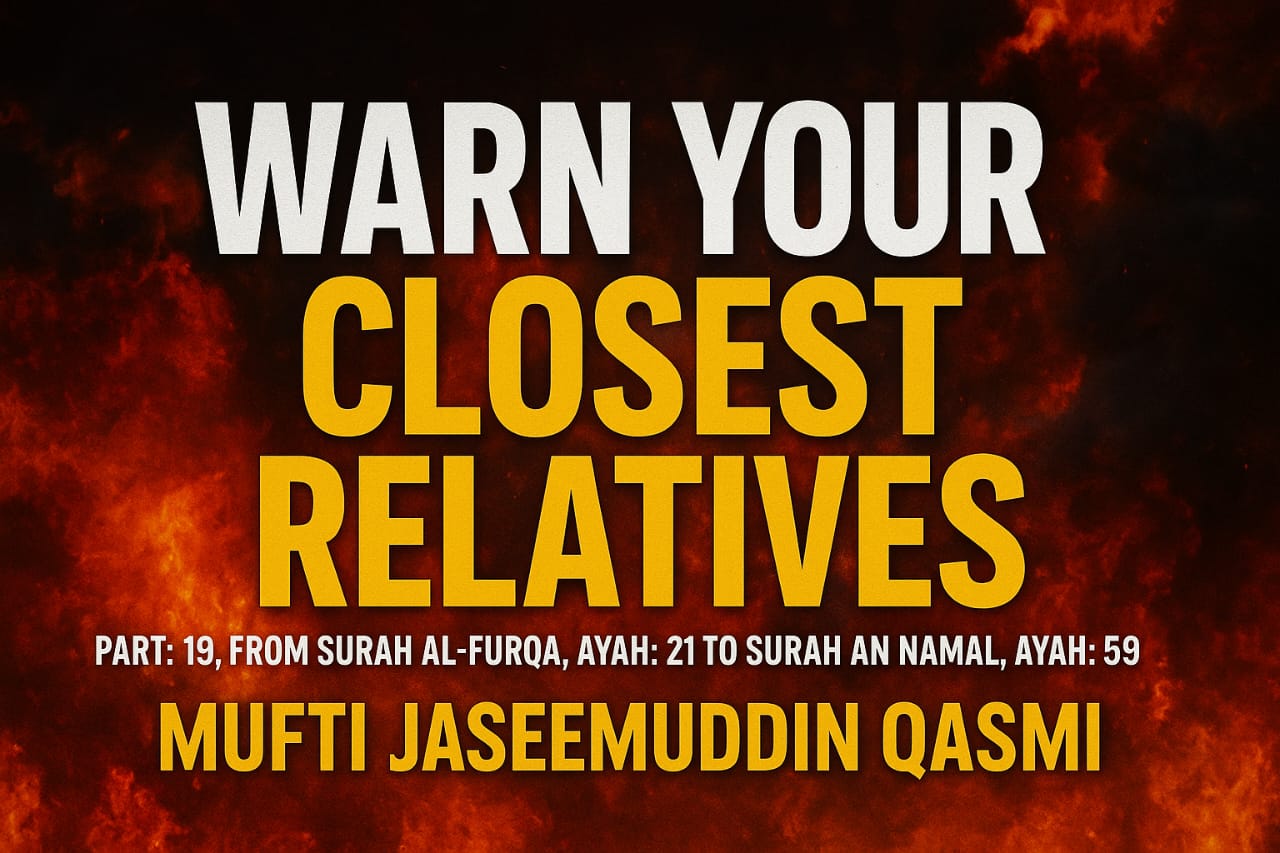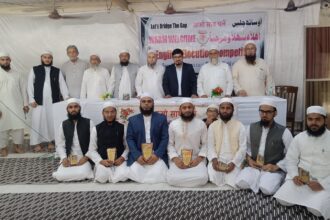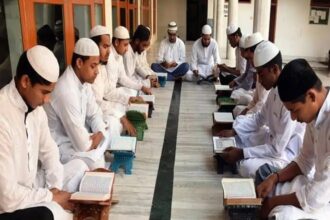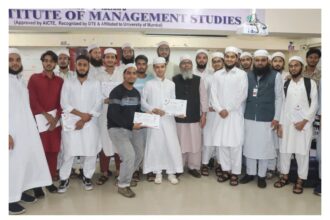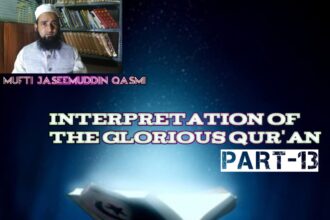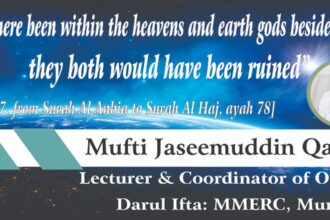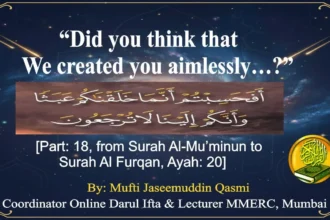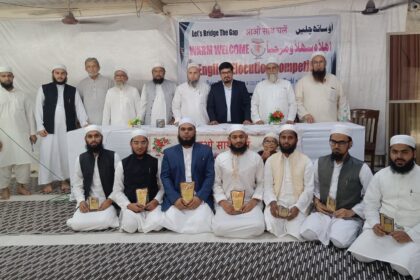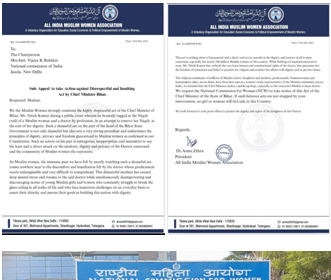“Warn Your Closest Relatives.”
[Part: 19, from Surah Al-Furqa, Ayah: 21 to Surah An Naml, Ayah: 59]
By: Mufti Jaseemuddin Qasmi
Coordinator Online Darul Ifta & Lecturer MMERC, Mumbai
In the first ayah of the Part-19 of the Qur’an, the stubborn disbelievers are addressed. Thus, the Quran states: “And those who do not expect the meeting with Us say, “Why were not angels sent down to us, or why do we [not] see our Lord?” They have certainly become arrogant within themselves and become excessively insolent.”
Ayah 30 of Surah Al Furqan says “And the Messenger swill say: ‘My Lord! Surely my people deserted this Qur’an.’”
Although in the context of this ayah “my people” refers to the disbelievers, it also serves as a warning for Muslims — that if, despite being believers, they neglect or abandon the Qur’an, they too might fall under the meaning of this grave statement. In that case, instead of interceding for them, the Prophet (saws) might complain about them.
In ayahs 32 and 33, the objection of the disbelievers and its reply are mentioned. The disbelievers used to say, “Why was the Qur’an not revealed all at once?” Allah replied that the wisdom behind revealing the Qur’an gradually was to strengthen and console the Prophet (saws). Whenever new hardships were inflicted upon him by the opponents, new ayahs were revealed to comfort him. Likewise, whenever the disbelievers raised new objections, clear answers were provided through the newly revealed ayahs of the Qur’an.
Ayah 53 of Surah Al Furqan says, “And it is He who has released the two joint seas, one fresh and sweet and one salty and bitter, and He placed between them a barrier and insurmountable partition.”
At the meeting point of rivers and seas, one can observe a remarkable sight — two distinct types of water flowing side by side without mixing with each other. There exists a strange and invisible barrier that prevents each from crossing into the other’s domain.
Some scholars have written that a similar phenomenon occurs in the Atlantic Ocean near America, where such waters exist with a natural division between them. The barrier is so distinct that freshwater fish do not move into the saltwater area, and saltwater fish do not enter the freshwater zone.
Attributes of Righteous People
Allah Almighty mentions the attributes of righteous people from ayah 63 to 76 of Surah Al-Furqa, as He says, “And the servants of the Most Merciful are those who walk upon the earth easily, and when the ignorant address them [harshly], their only response is, “Peace be with you. “And they who pass the night prostrating themselves and standing before their Lord.
And they pray: “Our Lord! Keep the punishment of Hell away from us, surely the torment of it is permanently destructive. When they spending, they neither exceed the limits nor act miserly, and stay in moderation between the two.
And those who do not invoke with Allah another deity or kill the soul which Allah has forbidden [to be killed], except by right, and do not commit unlawful sexual intercourse. And whoever should do that will meet a penalty. And those who do not give false witness, and when they pass near some indecency, they pass by it saving their honour.

And those who, when they are reminded of the verses of their Lord, do not fall upon them deaf and blind (but they listen attentively and try to understand).And those who pray, “Our Lord, grant us from among our wives and offspring comfort to our eyes and make us leaders for the righteous. “Those will be awarded the Chamber for what they patiently endured, and they will be received therein with greetings and words of peace.”
﷽
Here begins Surah Ash-Shu‘ara. This is a Makki surah and consists of 227 ayahs.
In ayah 3, Allah says: “Perhaps, [O Muhammad], you would kill yourself with grief that they do not be believers.” Allah comforted Prophet’s (saws) with these words, due to his tireless efforts and deep concern for the spread of Islam.
In ayah 4, Allah says: “If We will, We can send down upon them a sign from the heaven so that their necks would remain bowed before it.” However, Allah did not do so, because this world is meant to be a place of trial and test.
From ayah 10 to 66, the detailed story of Prophet Musa (as) is mentioned.
It is mentioned in ayahs from 69 to 89 of Surah Ash-Shu‘ara that Prophet Ibrahim (as) tried to make his disbelieving father and his people understand the falsehood of idol worship, and then he made some important supplications to Allah.
From ayah 105 to 121, the story of Prophet Nuh (as) is mentioned. From ayah 123 to 139, the account of the people of ‘Ad is described.
People of Prophet Shu‘ayb (as)
From ayah 141 to 158, the story of the people of Thamud is mentioned.
From ayah 160 to 174, the account of the people of Lot (as) is described.
After that Prophet Shu‘ayb’s people are mentioned, the people of Aykah.
In ayah 189, Allah says: “So they denied Shu‘ayb, and consequently, the punishment of the day of the black cloud seized them…”
After several days of intense heat, a cloud appeared near the town of Prophet Shu‘ayb’s people, under which there seemed to be a cool breeze. All the people gathered beneath that cloud, but then the cloud rained down flames upon them, and they were all destroyed.
Ayah 196 of Surah Ash-Shu‘ara, tells that the Qur’an is also mentioned in the previous heavenly scriptures. After that, the false accusations of the disbelievers regarding the Qur’an are refuted — that it is not the word of fortunetellers, nor something brought by devils. Furthermore, it is stated that it is not poetry either.
Concern for the Closest Family First
In ayah 214, Allah says:
“And (O Prophet) warn your closest relatives.” This is the first ayah in which the Prophet (saws) was commanded to begin preaching the message of Islam, and he was instructed to start with his own close family members.
Accordingly, after the revelation of this ayah, the Prophet (saws) gathered his close relatives and invited them to the true religion of Allah.
This also teaches an important lesson — that those who strive for reform should begin the process of reformation with their own household and family first.
Do the Deviant People Follow the Poets?
From ayah 224 till the end of this surah, it is stated regarding the ordinary poets that they are often followed by those who go astray.
“And the poets – only the deviators follow them. Do you not see that in every valley they roam. And that they say what they do not do? Except those who believed and did good deeds…”
Poetry is often imaginary and not always based on reality. Poets often use exaggeration, and they may go beyond limits in metaphors and similes. Therefore, those who make poetry the main focus of their lives are not considered worthy of being religious leaders or guides. And whoever follows such poets seeks to live in an imaginary world rather than facing reality.
After mentioning this, Allah made an exception, clarifying that if poetry is free from these faults and is composed in accordance with faith and righteous deeds, then there is no harm in it. In fact, if it is written for noble and virtuous purposes, it is praiseworthy.
Accordingly, some of the Companions — such as Hazrat Hassan ibn Thabit (ra) and Hazrat Abdullah ibn Rawahah (ra) — composed poems in praise of the Prophet(saws), responding through their couplets to the objections of the disbelievers.
The Prophet (saws) even encouraged Hassan (ra) and some other Companions to recite such poetry in defense of Islam.
﷽
Here begins Surah An-Naml. This is a Makkan Surah, and it contains 93 ayahs.
Up to ayay 6, the Surah speaks about the greatness of the Qur’an, the qualities of the believers, and the situation and punishment of the disbelievers.
From ayah 7 to 14, the story of Prophet Musa (as) is mentioned — when, by Allah’s command, he was returning from Madyan (Midian, it is located in the northwestern region of present-day Saudi Arabia, in Tabuk Province.) to Egypt with his family. On the way, he saw a fire near Mount Ṭūr (Sinai, it is in Egypt’s Sinai Peninsula now), where certain miracles were manifested. The details of this incident will be mentioned in Surah Al-Qasas.
In ayah 15 of Surah AnNaml, Allah says, “And We had certainly given to David (Dawood) and Solomon (Sulaiman) knowledge, and they said, “Praise is due to Allah, who has bestowed us superiority over many of His believing servants.”
The Legacy of Prophet Sulaiman (as) from Prophet Dawood (as)
Ayah 16 states, “And Solomon inherited David. He said, “O people, we have been taught the language of birds, and we have been given from all things. Indeed, this is evident bounty.”
It should be noted that, according to an authentic hadith, the inheritance of the Prophets is not distributed among their heirs. Therefore, the meaning of “inheritance” in this ayah is that Prophet Sulaiman succeeded his father Prophet Dawood (as) in prophethood and kingship, not in material possessions.
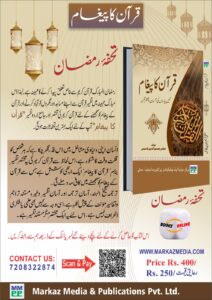
Allah Almighty had taught Prophet Sulaiman (as) the languages of birds and other creatures.
The summary of ayah 17 is that the kingdom granted to Prophet Sulaiman (as) was not limited to human beings alone, but extended to jinns and birds as well. Whenever his army marched, it included jinns, humans, and birds, all under his command. The forces were so vast that special arrangements had to be made to keep them organized, yet discipline and order were perfectly maintained.
Prophet Sulaiman (as) in Valley of Ants
In ayahs 18 and 19, the Qur’an speaks about the army of Prophet Sulaiman (as),‘‘When they came to the valley of the Ants, an ant said: “O ants! Enter your dwellings lest Solomon and his armies may not crush you, while they do not perceive. So [Sulaiman] smiled, amused at her speech, and said, “My Lord, enable me to be grateful for Your favor which You have bestowed upon me and upon my parents and to do righteousness of which You approve. And include me, by Your mercy, among Your righteous servants.”
The story of Bilqis and the people of Saba
From verse 20 onward, the story of the hoopoe (Hudhud), Bilqis, and the people of Saba’ is mentioned.
“And he (Sulaiman) took attendance of the birds and said, “Why do I not see the hoopoe – or is he among the absent? I will certainly punish him severely, or slaughter him, unless he brings me a convincing reason. But the hoopoe did not stay long; he came and said, ‘I have discovered something that you have not known. I have brought you certain news from (the land of) Saba’. I found a woman ruling over them, and she has been given everything, and she has a magnificent throne.’”
(Saba’ was the name of a people who lived in a region of Yemen. The land itself came to be called Saba’ after them. At that time, there was a queen ruling over them whose name, according to historical reports, was Bilqis.)
The hoopoe added, “I found her and her people prostrating to the sun instead of Allah, and Satan has made their deeds seem fair to them, thus he has kept them away from the right path, and so they are not rightly guided.”
“Sulaiman said, ‘We shall see whether you have told the truth or you are among the liars. Take this letter of mine and deliver it to them, then move aside from them and see what they answer in return.’”
“(The hoopoe did so,) and the queen said, ‘O chiefs! Indeed, a noble letter has been delivered to me. It is from Sulaiman, and it begins in the name of Allah, the Most Gracious, the Most Merciful. (It says:) Be not haughty with me but come to me in submission.’”
“Then the queen said, ‘O chiefs of the people! Give me a decisive counsel regarding this matter that has been brought before me. I do not make a final decision until you are present with me.’ They replied, ‘We are a people of strength and warriors; the matter is now in your hands — decide what you wish.’”
“The queen said, ‘The truth is, when kings enter a town they ruin it and disgrace its honorable inhabitants. These men will do the same. I will send them a gift, and then see what reply their messenger brings back.’ So when the messenger returned to Sulaiman, he said, ‘Do you wish to aid me with wealth?’ Sulaiman replied, ‘What Allah has granted me is far better than what He has given you. Yet, enjoy your gift if you will.’”
Prophet Sulaiman ordered, “Return to them, for we will surely come to them with soldiers that they will be powerless to encounter, and we will surely expel them therefrom in humiliation, and they will be humbled.”
“Sulaiman said, ‘O people of the council! Which of you will bring me her (Bilqis) throne before they come to me in submission?’”
(Actually Sulaiman (as) desired that, when the queen arrived, she would witness his miracle, that is, her magnificent throne would already be present before her, demonstrating his power.)
“A powerful-bodied jinn said, ‘I will bring it to you before you rise from your place; I am indeed strong and trustworthy.’ One who possessed knowledge of the scripture said, ‘I will bring it to you before your eye blinks.’”
“So when Sulaiman saw the throne placed before him, he said, ‘This is by the grace of my Lord — to test me whether I will be grateful or ungrateful. Whoever is grateful does so for his own good; but whoever is ungrateful — surely my Lord is Self-Sufficient, Most Generous.’”
The Glorious Qur’an has not specified who that person was. Some scholars have said that he was Āṣif ibn Barkhiyā, the minister of Prophet Sulaimān (as). Imām Rāzī and others have stated that the one referred to was Prophet Sulaimān (as) himself.
After the throne was brought, Prophet Sulaimān (as) altered its appearance in such a way that it became difficult to recognize, in order to test the Queen’s intelligence and understanding.
To sum up, Prophet Sulaimān (as) noticed the absence of the hoopoe, who soon returned with news about the Queen of Saba’ (Bilqis) and her people’s sun worship. Sulaimān sent her a letter inviting her to submit to Allah. When her diplomatic gift failed to impress him, he warned of his might. To demonstrate divine power, he asked for her throne to be brought before her arrival which was miraculously done in the blink of an eye.
Further, ayah 42 of Surah An-Naml says, “So, when she (Bilqis) arrived, she was asked ‘is your throne like?’ She said, ‘It seems exactly the same.’(Then she added:) ‘And we already were given knowledge before it, and we had already submitted (to Allah).’”
Ayha 44 states, “She was told, “Enter the palace.” But when she saw it, she thought it was a body of water and uncovered her shins (to wade through). He said, “Indeed, it is a palace (whose floor is) made smooth with glass.” She said, “My Lord, indeed I have wronged myself, and I submit with Sulaiman to Allah, Lord of the worlds.”
In short, prophet Sulaimān (as) tested the Queen of Sheba’s intelligence by altering her throne and later amazed her with the glass palace. The Queen realized Prophet Sulaiman’s divine wisdom and accepted faith in Allah.
From verse 45 to the end of Part-19, the narrative turns to the stories of the peoples of Thamūd and Lūṭ, highlighting how their rejection of divine guidance led to their downfall.

